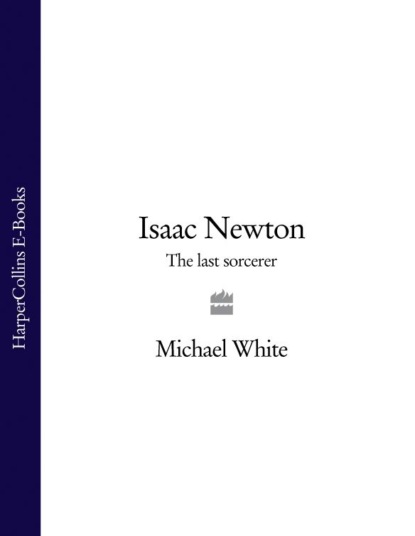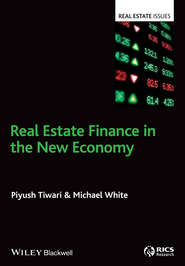По всем вопросам обращайтесь на: info@litportal.ru
(©) 2003-2024.
✖
Isaac Newton: The Last Sorcerer
Настройки чтения
Размер шрифта
Высота строк
Поля
(#litres_trial_promo)
It is difficult to assess accurately how important Catherine Storer was to Newton, because we have only her account of their relationship – conveyed to Stukeley shortly before Newton’s death. By this time Newton was a world-renowned scientist and, aside from the fact that she was in her early eighties and doubtless romanticising her own past, for Catherine to exaggerate her place in the great man’s boyhood affections would have been quite natural.
They were certainly close friends. This much is demonstrated by their writing to each other during Newton’s early days in Cambridge. Further evidence comes from a conversation Stukeley recalled having with Newton shortly before the scientist’s death. Newton, he claimed, expressed a desire to return to live out his days in Woolsthorpe and showed a particular interest in acquiring a property near to where Catherine had once lived.
(#litres_trial_promo) However, Catherine Storer’s suggestions to Stukeley that she and Isaac were sweethearts, and that Newton had at one time seriously considered passing up his academic career in order to marry her are most probably pure fantasy. In his memoirs, Stukeley recounted Catherine Storer’s tale, saying:
Sir Isaac and she being thus brought up together, it is said that he entertained a love for her, nor does she deny it. But her portion being not considerable, and he being [a] fellow of a college, it was incompatible with his fortunes to marry, perhaps his studies too. It is certain he always had a kindness for her, visited her whenever in the country, in both her husbands’ days, and gave her forty shillings upon a time, when it was of service to her. She is a little woman, but we may with ease discern that she has been very handsome.
(#litres_trial_promo)
Catherine may have harboured hopes, but any spark of romantic interest that Isaac might have shown her was soon extinguished. As his academic performance improved, he was drawn to the attention of his headmaster, Henry Stokes, who saw in him a talent he could not allow to go to waste.
No record of Newton’s academic progress survives, but it is safe to assume that by the time the boy was sixteen Stokes was already viewing him as a likely candidate for university entrance. What Hannah’s initial reaction to her son’s progress might have been is unknown, but late in 1658, as Stokes was about to suggest that her son should consider a university education, Hannah decided to remove him from King’s School.
Hannah had shown little consideration for education, and it had been at the insistence of her brother, the Cambridge-educated William Ayscough, that Isaac had attended an elementary school while living with his grandparents. Ironically, it could have been Stokes’s enthusiasm that prompted Hannah to remove Isaac from the school. She saw little need for her son to be educated; her husband had demonstrated how the farm could be managed even without the benefit of literacy.
At first Hannah had her way. For most of 1659 Isaac lived at the manor with his mother and Barnabas Smith’s children. But, in the notebook started in 1662, the list of his ‘sins’ during the period in which he lived there indicates that it was a time fraught with bitterness and family arguments.
He was, for the most part, an obedient and respectful son, but the stress of being taken away from an environment in which he was blossoming and the threat of having his life ruined again by the wishes of his mother were evidently too much. The Fitzwilliam Notebook lists his crimes as ‘Refusing to go to the close at my mother’s command’, ‘Striking many’, ‘Peevishness with my mother’, ‘With my sister’, ‘Punching my sister’ and ‘Falling out with the servants’. The signs of strain are clear.
Whether it was to show deliberately how bad he was at farm duties or through genuine inability and absent-mindedness, he did not perform his duties at all well. Stukeley tells us that:
When at home if his mother ordered him into the fields to look after the sheep, the corn, or upon any rural employment, it went on very heavily through his manage [i.e. he did not conduct the task well]. His chief delight was to sit under a tree, with a book in his hands, or to busy himself with his knife in cutting wood for models of somewhat or other that struck his fancy, or he would go to the running stream, and make little millwheels to put into the water.
(#litres_trial_promo)
His lack of interest even brought an admonition from the authorities. The records of the manor court of the nearby village of Colsterworth show that on 28 October 1659 an Isaac Newton was fined 3s. 4d. ‘for suffering his sheep to break the stubbs of 23 of loes [loose?, meaning unenclosed] furlongs’. On top of this, he was obliged to pay 1s. on each of two further counts, ‘for suffering his swine to trespass in the corn fields’ and ‘for suffering his fence belonging to his yards to be out of repair’.
(#litres_trial_promo)
Following this, Hannah decided that her son should be supervised by a servant from the household who would look after him and give the boy proper instruction. Predictably, the idea failed because Newton quickly turned the situation to his advantage, allowing the servant to do all the work while he sloped off to read or to pursue other interests.
Each Saturday, Isaac set off dutifully with the servant to Grantham to sell the farm produce and to purchase supplies for the following week. Arriving at the Saracen’s Head, the inn in Westgate, he would instruct the servant to continue with the business of the day while he went off to visit Mr Clark at his shop in the High Street.
What drew Newton there was a collection of books that Clark had acquired from his recently deceased brother, Dr Joseph Clark, the usher (assistant teacher) of King’s School. The apothecary himself was interested in the collection, but had little time to read. Perhaps Newton had offered to catalogue the books in exchange for the chance to read them; be that as it may, somehow he managed to persuade Clark to allow him to spend almost all of each Saturday in the back room behind the shop in solitary bliss studying texts on physics, anatomy, botany, philosophy and mathematics – his first real exposure to these things. From Bate’s The Mysteries of Nature and Art Newton had discovered the elements of experimentation and practical skills – lessons he would never forget but would employ both as an orthodox scholar and in his role as alchemist. But here were texts by greater writers and natural philosophers. We do not know for sure the contents of the library, but it is safe to assume a scholar such as Dr Clark would have collected the works of the great names of the past and perhaps the more controversial figures of the day, and it is likely that Newton now first discovered Francis Bacon and René Descartes, Aristotle and Plato, acquiring a fuller and more useful education than he could possibly have gained within the narrow confines of the school curriculum.
Word of Isaac’s truancy soon reached two different parties involved in the argument over his future. Hannah heard of her son’s antics through the complaints of the servant, and Henry Stokes discovered how his ex-pupil was showing admirable determination not to fall under his mother’s yoke. Stokes had tried to dissuade Hannah from taking Newton away from school but had been unsuccessful. Now, hearing how Isaac was doing everything he could to foil his mother’s efforts, Stokes decided to try again.
Initially, nothing changed. Despite the irritation caused by her son’s behaviour, Hannah would not listen to suggestions that he should pursue an academic career and desert the farm. To be fair, Hannah was herself poorly educated and could not have appreciated the world of learning that Isaac took to so naturally. To her, the only thing that mattered was the management of the estate: it was the source of their prosperity, and she could not understand what her son could possibly gain by attending university. She had already lost two husbands and was expected to maintain a farm, run a household and look after three young children. She could not bear to lose Isaac too.
But, after Stokes appealed to her a second time, she realised she could hold Isaac back no longer. (Her decision was no doubt sweetened by Stokes’s offer to remit the standard charge of forty shillings paid to the school by the parents of all boys who came from beyond the town.
(#litres_trial_promo))
Stokes then talked to William Ayscough (who had probably influenced Hannah’s change of heart and was himself a graduate of Trinity College, Cambridge), and probably to Humphrey Babington, a relative of the Clarks and a fellow at Cambridge University. Together they smoothed the way for Isaac’s admission, and by the autumn of 1660 the young man was back in Grantham preparing for Cambridge.
Helped by those around him who understood his desire to learn, Isaac now, for the first time, found himself completely content. Throughout his childhood and teenage years he had constantly been pulled in different directions. At school he clashed with the teaching tradition on the one hand and his contemporaries on the other. He eventually found his true nature not from the comfort of others or through the small accomplishments of orthodoxy, but in the discovery of a larger world beyond the confines of his upbringing. By 1660 he had passed the threshold and entered the world in which he would flourish.
Chapter 2 The Changing View of Matter and Energy (#ulink_48af47eb-fc49-568d-9e35-3a197ebddc44)
If God created the world, where was he before the Creation? … Know that the world is uncreated, as time itself is, without beginning and end. Mahapurana (India, ninth century)
What is matter, and how does it move? These are questions that have occupied the thoughts of physicists from ancient times to the present day, and they were fundamental queries for Isaac Newton.
Our modern view is based upon the rather exotic world of quantum theory, but for most everyday purposes the way in which we manipulate matter and energy relies upon rules and systems discovered between Newton’s lifetime and the present century. For many historians of science, Newton’s ideas about how matter behaves and how energies and forces operate can be seen as a watershed in the development of physics. Indeed, some perceive his work as making possible the Industrial Revolution. Newton provided a focus: he was an individual scientist who drew together the many threads that led from ancient times to his fathering of modern empirical science (a study based upon mathematical analysis as well as experimental evidence). Behind Newton lay some 2,000 years of changing ideas about the nature of the universe; his great achievement was to clarify and to bring together the individual breakthroughs of men like Galileo, Descartes and Kepler and to produce a general overview – a set of laws and rules that has given modern physics a definite structure.
The ancient Greeks were the first to record their ideas about the nature of matter, and we know of several different schools of reasoning. The two most important for our purposes are the teachings of Aristotle and the ideas of a rival theory – the atomic hypothesis of Democritus.
The Greek philosophy that prevailed up to Newton’s time was that traditionally attributed to Aristotle – the notion of the four elements: earth, water, air and fire. The alternative was the ideas of Democritus, born some seventy-five years before Aristotle, in 460 BC, who taught that matter is made up of tiny invisible parts, or atoms. Because Aristotle and Plato both largely disapproved of Democritus’s atomic theory, however, it was almost completely ignored from Aristotle’s day until its partial revival during the seventeenth century.
The first person to formulate the idea of the four elements was actually a Sicilian philosopher named Empedocles, some half-century before Aristotle’s birth, but the idea was refined and made popular by Aristotle. It is thought that the concept first arose from watching the action of burning. For example, when green wood is burned, the fire is visible by its own light, the smoke vanishes into air, water boils from the wood, and the remaining ashes are clearly earth-like. This gave rise to the idea that everything in the universe is composed of different proportions of these four fundamental elements – an idea which became the foundation of Aristotle’s work in natural philosophy that was handed down to future generations.
Aristotle was born in 384 BC at Stagira in Chalcidice. The son of the physician to Philip, King of Macedon, he later became the pupil of Plato and, in middle age, the teacher of Alexander the Great. He wrote a collection of tracts that were not only influential in his own time but whose rediscovery in an incomplete form by European scholars during the thirteenth century heralded a return to learning and the earliest emergence of the Renaissance. Those most relevant to his thoughts on natural philosophy (what by the eighteenth century had become known as physics) were On Generation and Corruption and Physical Discourse, which concentrated upon ideas concerning matter, form, motion, time and the heavenly and earthly realms.
To Aristotle, the earthly realm was composed of a blend of the four elements which, if left to settle, would form layers: water falling through air (or air moving up through water, as do bubbles), solid earth falling through water and air, and fire existing in the top layer because it moves up through air. Using this model, Aristotle would have explained the fall of an apple as being due to the earthy and watery parts of the solid apple trying to find their natural place in the universe, falling through air to reach the ground. As well as popularising the idea of the four elements, Aristotle also pioneered the concept of the Unmoved Mover – the name he gave to the omnipotent being who maintained the movement of the heavens, keeping the Sun and the planets travelling around the Earth.
Aristotle’s work was encyclopedic in range, and he wrote on almost all subjects known at the time, covering logic, philosophy, biology, astronomy and physics. His strongest subjects were logic and, of the sciences, biology; his weakest was physics. Most significant for how Aristotle arrived at many of his scientific ideas was his creation of syllogistic logic: the principle that a conclusion can be reached as a logical consequence of two preceding premisses. An example of this is the collection of statements ‘All elephants are animals; all animals are living things; therefore all elephants are living things.’
Syllogisms are powerful tools in the study of logic, and were used as a fundamental mathematical procedure until the nineteenth century, when they were superseded by more versatile ideas, but their use is a rather superficial way to conduct science, because syllogistic logic does not contain an element of experiment: syllogisms consist merely of two statements and a conclusion based upon superficial observation or deductive reasoning.
Plato, Aristotle’s teacher (and the man who established the school at the Academy in Athens which lasted nine centuries), actively disliked experiment and so it was never established as a guiding principle for Greek natural philosophy. Instead, Aristotle and the generations of Greek thinkers who followed him created a rigid set of rules based upon syllogistic logic only, producing a distorted picture of reality. But, because of Aristotle’s stature, this limited approach became endowed with an aura of infallibility which persisted until the beginning of the modern era. The historian Charles Singer has said of this unfortunate process:
The whole theory of science was so interpreted, and the whole of logic was so constructed, as to lead up to the ideal of demonstrative science [i.e. conclusions reached through reasoning alone], which in its turn rested on a false analogy which assimilated it to the dialectics of proof. Does not this mistake go far to account for the neglect of experience and the unprogressiveness of science for nearly 2,000 years after Aristotle?
(#litres_trial_promo)
In the same vein, the writer and historian Sir William Dampier pointed out that:
Aristotle, while dealing skilfully with the theory of the passage from particular instances to general propositions, in practice often failed lamentably. Taking the available facts, he would rush at once to the wildest generalisations. Naturally he failed. Enough facts were not available, and there was no adequate scientific background into which they could be fitted.
(#litres_trial_promo)
The modern scientific method involves reasoning and experiment. To give a simple example: early on in a scientific investigation an idea is postulated – often based upon an inspired insight. This is then developed into a tentative hypothesis by means of pure reasoning – a process called the inductive method. The practical consequences of this hypothesis must then be deduced mathematically and the idea is tested experimentally. If there are discrepancies between the hypothesis and the experimental results or observations, the hypothesis must be altered and the experiments be repeated until there is either agreement between reasoning and observation or the original idea is discarded. If the reasoning and the practical verification eventually agree, the hypothesis is promoted to the status of a theory. This can then be used to attempt to explain a more generalised scenario than the original concept and may hold for many years. But, crucially, it is still never considered to be the only theory that could fit the facts, and good science allows for new ideas to be introduced that may destroy the old theory or demand radical changes.
(#litres_trial_promo)
Aristotle’s dominance left no room for alternative ideas. Democritus, the father of the atomic theory, believed that ‘According to convention there is a sweet and a bitter, a hot and a cold, and according to convention there is colour. In truth there are atoms and void.’ Aristotle dismissed this notion by relying upon syllogisms that were founded upon inadequate knowledge. For example, he claimed that, if the atomic theory were true, matter would be heavy by nature and nothing would be light enough in itself to rise. A large mass of air or fire would then be heavier than a small mass of earth or water, so the earth or water would not sink (or the air and fire rise) and therefore the elements would not find their natural positions. This argument illustrates how Aristotle was not approaching the problem in the way a modern objective scientist would – he was not able to consider questioning his own cherished beliefs even when presented with a strong alternative theory.
Aristotle’s dogma became almost a religion among his followers, and his teachings were passed on to future generations virtually unquestioned, misguiding future thinkers and leading science along a partially blind alley for several hundred years without interruption.
By the time of Aristotle’s death, in 322 BC, the Egyptian city of Alexandria was about to emerge as the intellectual centre of the world. At its heart was the great library which is said to have contained all human knowledge in an estimated 400,000 volumes and scrolls. From Alexandria, learning spread eastward with the conquests of Alexander the Great and west into Europe, where Greek philosophy, science and literature acted as the foundation for Roman culture. This was especially true of science: the Roman era could boast many great intellects – Pliny, who lived during the first century AD and wrote a thirty-seven-volume treatise, Naturalis Historia, and Plutarch, a thinker of the following generation, to name only two. But these men did little original science and concentrated on refining and clarifying Greek teachings passed on to them.
Of the Greek science that survived through to the early Roman era, the work of Aristotle, Plato, Archimedes and Pythagoras was best preserved, although the ideas of Democritus were championed by the Roman philosopher Lucretius in his poem De Natura Rerum. By the time Roman power was melting away and the library at Alexandria was decimated at the hands of the Christian bishop Theophilus around AD 390 (it was later sacked a second time by the Arabs during the seventh century), Aristotle’s work was becoming unfashionable.
The reason for this lies in a shift from pure intellectual inquiry to a distrust of any learning beyond theological exegesis: this plunged most of civilisation into what has become known as the Dark Ages. In this era, as the Roman Empire was in rapid decline, education and learning became dominated by religious fanaticism. The disciples of this new movement, the Stoics, believed in the supreme importance of pure spirit over material existence and therefore shunned learning about the physical world as an end in itself. To them, Aristotle’s work was too mechanistic, too embedded in physical reality.
(#litres_trial_promo) Instead, the musings of Plato held much greater relevance and were perfectly in tune with the new obsession with religious meaning.









